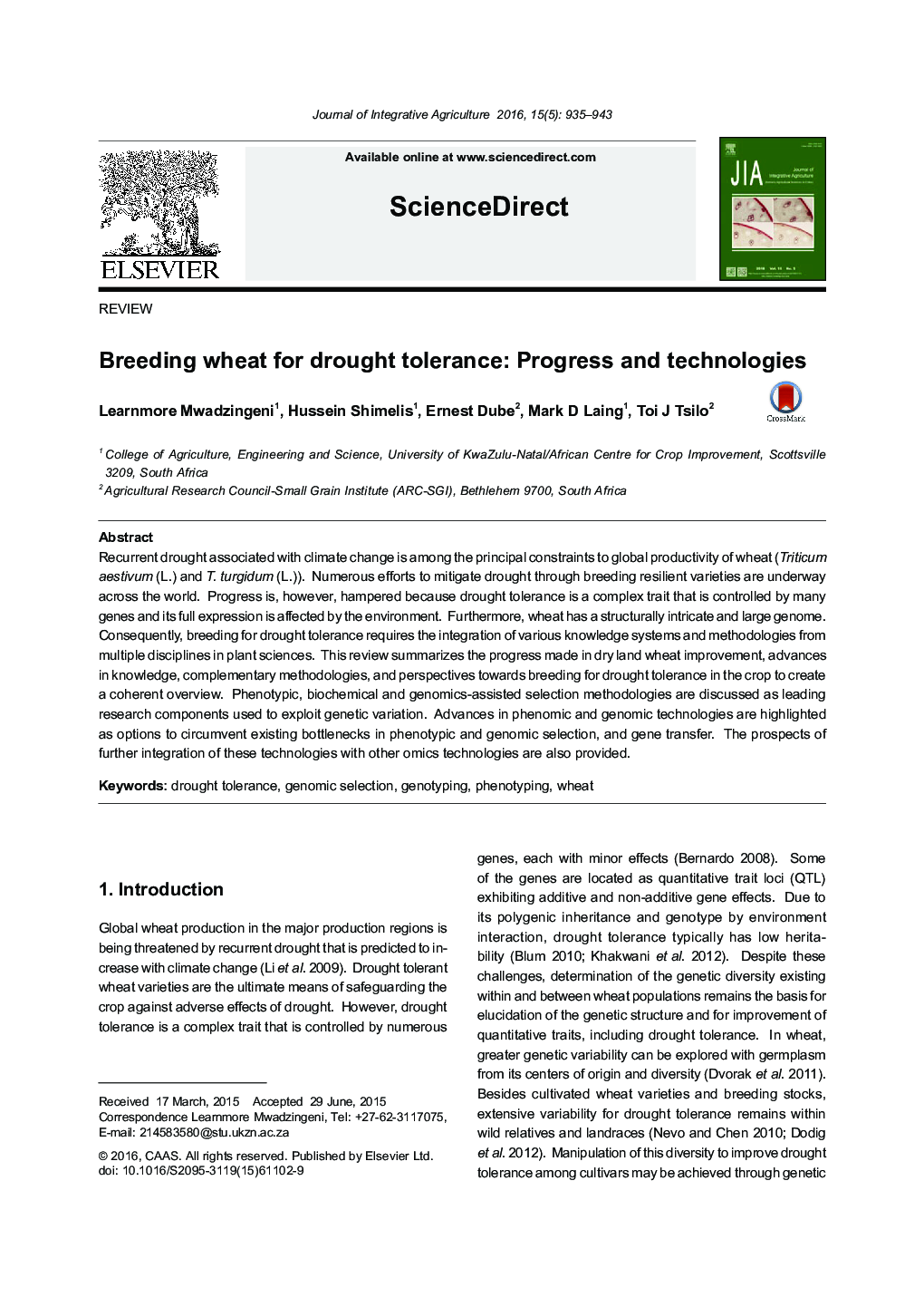| Article ID | Journal | Published Year | Pages | File Type |
|---|---|---|---|---|
| 10179992 | Journal of Integrative Agriculture | 2016 | 9 Pages |
Abstract
Recurrent drought associated with climate change is among the principal constraints to global productivity of wheat (Triticum aestivum (L.) and T. turgidum (L.)). Numerous efforts to mitigate drought through breeding resilient varieties are underway across the world. Progress is, however, hampered because drought tolerance is a complex trait that is controlled by many genes and its full expression is affected by the environment. Furthermore, wheat has a structurally intricate and large genome. Consequently, breeding for drought tolerance requires the integration of various knowledge systems and methodologies from multiple disciplines in plant sciences. This review summarizes the progress made in dry land wheat improvement, advances in knowledge, complementary methodologies, and perspectives towards breeding for drought tolerance in the crop to create a coherent overview. Phenotypic, biochemical and genomics-assisted selection methodologies are discussed as leading research components used to exploit genetic variation. Advances in phenomic and genomic technologies are highlighted as options to circumvent existing bottlenecks in phenotypic and genomic selection, and gene transfer. The prospects of further integration of these technologies with other omics technologies are also provided.
Related Topics
Life Sciences
Agricultural and Biological Sciences
Agricultural and Biological Sciences (General)
Authors
Learnmore Mwadzingeni, Hussein Shimelis, Ernest Dube, Mark D Laing, Toi J Tsilo,
